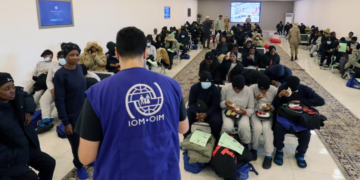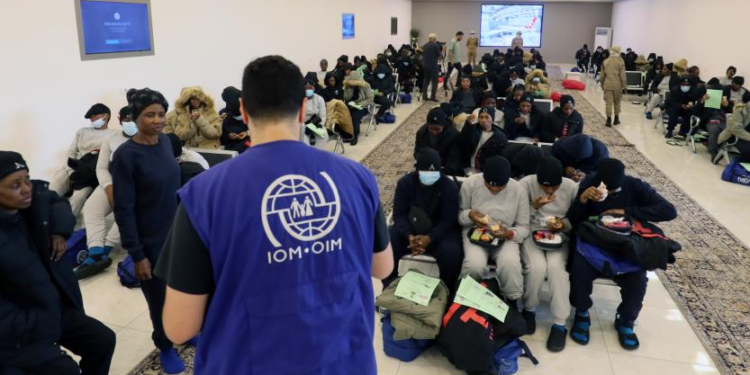By Ebi Kesiena
Libyan authorities have announced the repatriation of 174 irregular migrants to Nigeria, including dozens of women and six children, with further repatriations planned in the coming weeks.
The operation was led by Mohammed Baredaa, head of the Libyan Interior Ministry organization tasked with halting irregular migration.
Baredaa stated that the department had successfully repatriated 174 migrants of Nigerian origin, among whom were 39 women and six children. These repatriation operations, which are conducted by plane or road depending on the nationality of the migrants, will continue over the coming weeks.
The International Organisation for Migration (IOM) assists vulnerable migrants stranded in Libya or those who wish to return home through its voluntary humanitarian return programme. This initiative is crucial in providing safe passage and support for those who find themselves in dire situations.
Libya has been plagued by instability since the 2011 NATO-backed uprising that toppled and killed long-time ruler Muammar Gadhafi. This climate of instability has allowed smugglers and human traffickers to exploit migrants seeking to reach Europe. Libya, located about 300 kilometers from Italy, serves as a key departure point for sub-Saharan migrants risking dangerous sea journeys to Europe.
Zakaria Abubaker Shueib, a 20-year-old Nigerian migrant set to be repatriated, shared his experience: “I have been in Libya for three years to work and earn money and move to Europe.”
An IOM report revealed a troubling increase in migrant deaths or disappearances on Middle East and North Africa routes, rising to 4,984 last year from 3,820 in 2022. The report noted that Tunisia accounted for the highest number of incidents, followed by Libya with 683 recorded deaths of migrants, the majority of whom departed from western Libya. This stark statistic underscores the urgent need for more robust measures to protect migrants and address the root causes of irregular migration.
As Libya continues its efforts to repatriate migrants, it is imperative for the international community to support these initiatives and work towards creating safer migration pathways and stable environments in migrants’ home countries.




































